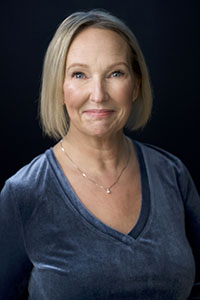Trial Lecture – time and place
See Trial Lecture.
Adjudication committee
- First opponent: Docent Ulrika Järkestig-Berggren, Linnéuniversitetet, Sweden
- Second opponent: Førsteamanuensis Bente Storm Haugland, University of Bergen
- Third member and chair of the evaluation committee: Professor Trond H. Diseth, University of Oslo
Chair of the Defence
Professor Thomas Clausen, Professor, University of Oslo
Principal Supervisor
Førsteamanuensis Ketil Hanssen-Bauer, University of Oslo
Summary
The number of ill parents who live at home while they are in active treatment has increased due to the shift from less inpatient to more outpatient care in public hospitals, and more of the treatment and care from primary health care. This has increased the need for formal external home based care and care from other family members. Unpaid care work provided by other family members has only recently been mentioned in public documents, statistics and research. The focus on the fact that children who are relatives perform more caring work than other children is still relatively absent.
In this thesis, Children affected by parental illness or parental substance abuse: young carers, well-being and quality of life, Ellen Katrine Kallander and colleagues investigated the extent and nature of the children’s caring activities, the positive and negative outcomes of the caring activities, and factors associated with their quality of life (QoL).
More than half of the children experienced more responsibilities at home due to parental illness. Two thirds of the children who had parents with physical illness reported increased responsibilities. These children reported also that they provided more emotional care to their parents than the children who had parents with a mental illness. One third of the children reported that they had too much responsibility due to the parents’ illnesses. The parents reported very limited access to formal external home based care. More than two out of ten parents reported that their children provided more care, such as personal care and medication, due to the parental illness.
Four factors seemed to be particularly important for the children when the parents were severely ill or had a substance abuse: The children’s good social skills that were associated with both that they reported more caregiving, more positive outcomes of their caregiving, and better QoL. The experience of more external locus of control was associated more caregiving, more negative outcomes of caregiving, and more reduced QoL. Negative and positive outcomes of caregiving were associated with reduced and increased QoL, respectively. Parents’ reports of reduced physical health status were associated with children’s reports of both more caregiving and reduced QoL.
The findings indicate that 10-12% of the young carers conducted extensive care based on the Norwegian Directorate of Health definition that adult carers have the right to carers support.
We should evaluate the discrepancy between interventions for adult carers and young carers in Norway in relation to the UN Convention on the Rights of the Child. Further studies should investigate how the unpaid caring activities, performed by children affected by parental illness, impact their health, school achievements and education, and how extensive care can be prevented in this group of children.
Additional information
Contact the research support staff.
